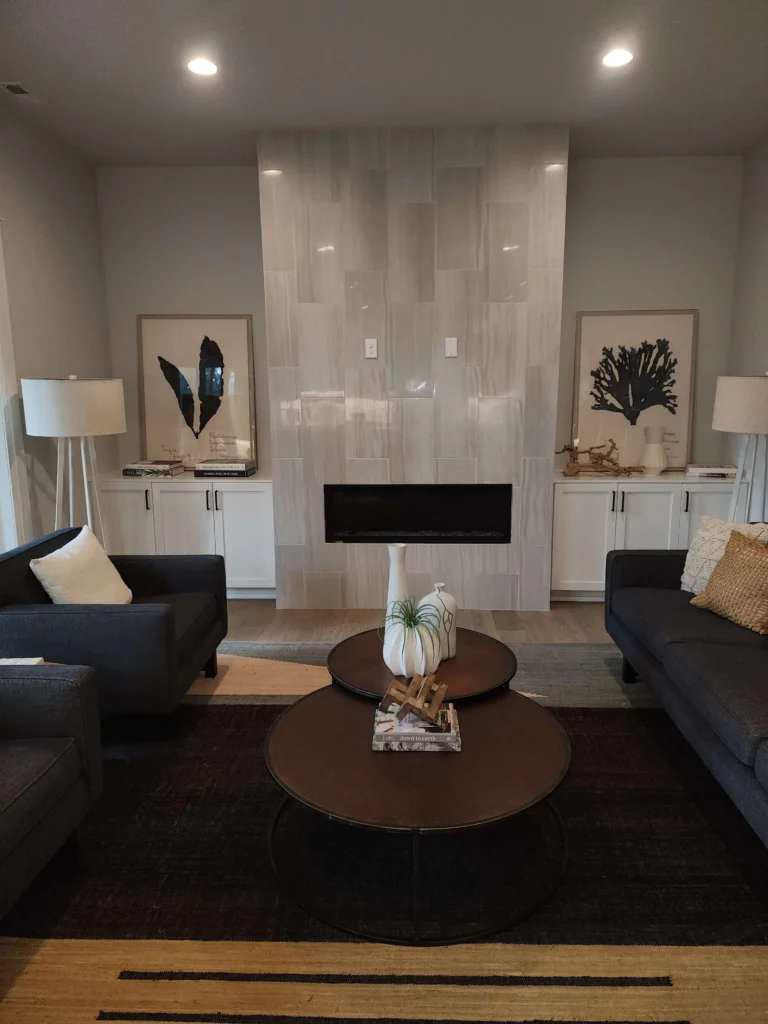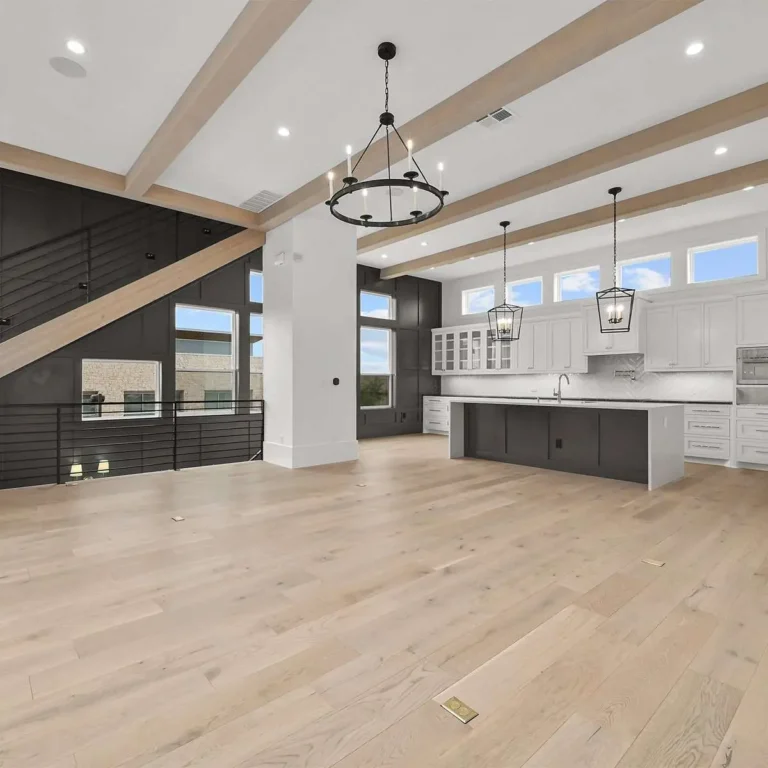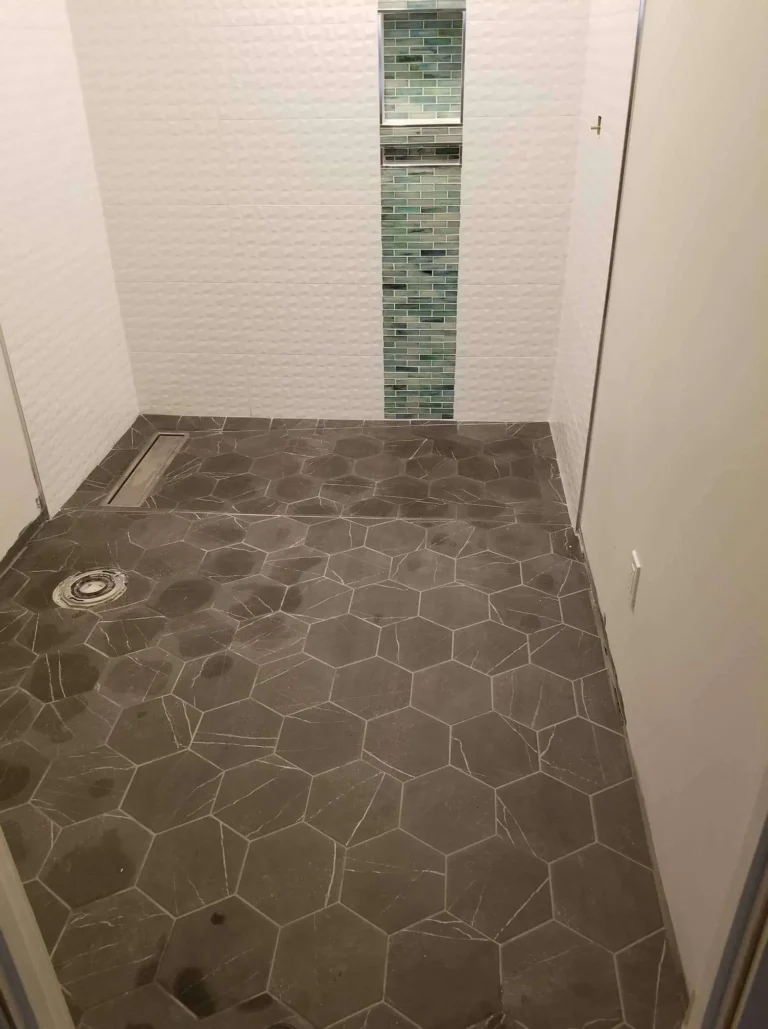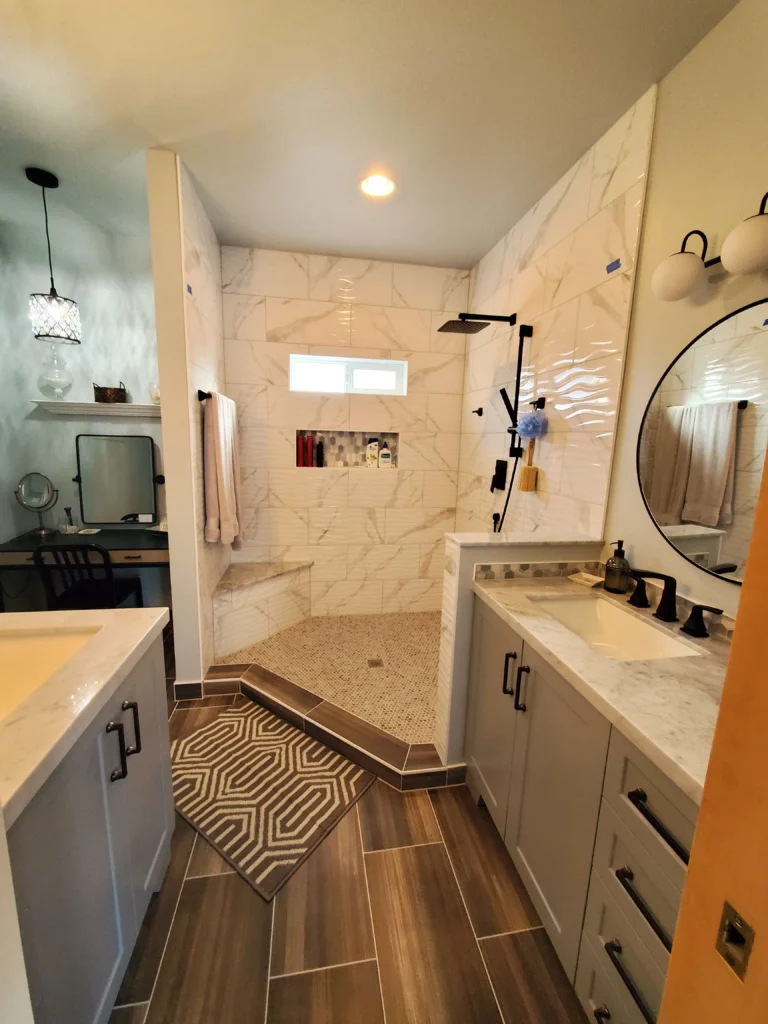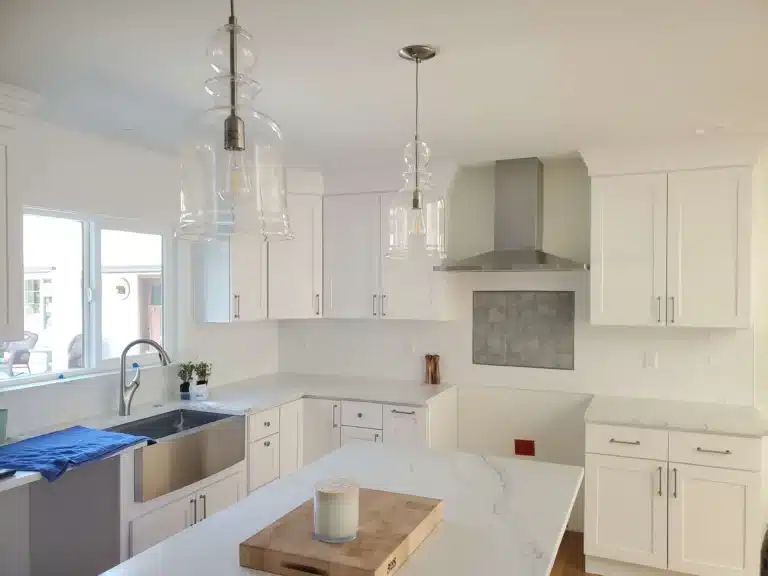
Choosing to remodel a kitchen in Renton is a popular decision for homeowners looking to update their living spaces. This process not only optimizes the look and functionality of the kitchen but also adds value to the home.
Understanding the timeline to remodel a kitchen is crucial, as it helps homeowners plan better and manage their expectations throughout the project. In this post, we’ll explain why knowing the timeline is essential for a successful renovation.
Understanding the Timeline to Remodel a Kitchen
The time it takes to remodel a kitchen can be quite different depending on the size of the project and other things that can affect it. Usually, kitchen remodels in Renton follow a set timeline to make sure each step is done well. Let’s look at the timeline and talk about how small and large projects can be different.
Before Construction:
- Planning and Design Phase: 1-2 weeks
- Permits and Approvals: 2-3 weeks
- Material Selection and Procurement: 1-3 weeks
- Pre-Construction Preparation: 1-2 weeks
During construction phase:
- Demolition and Site Clearing: 1-2 weeks
- Structural Changes and Utility Work: 1 week
- Installation of New Elements: 2-3 weeks
- Finishing Touches and Detailing: 1-2 weeks
1. Planning and Design Phase (1-2 weeks)
During the planning and design phase, you’ll work with designers to create the layout and style of your new kitchen. This part of the process usually takes 1 to 2 weeks. The exact timeline depends on how quickly you’re able to make decisions.
It’s important to be clear about your expectations with the designer. This helps make sure everyone is on the same page. It also prevents changes later that could cause delays in the project.
2. Permits and Approvals (2-3 weeks)
Before construction can begin, you need to obtain the necessary permits and approvals from the local authorities in Renton. This can take 2 to 3 weeks. Navigating Renton’s permitting process can be tricky, so it’s important to start early and ensure all paperwork is correctly submitted to avoid any hold-ups.
3. Material Selection and Procurement (1-3 weeks)
Selecting and ordering materials like cabinets, countertops, and flooring is a critical step that takes about 1 to 3 weeks. Some materials have longer lead times, so it’s essential to order them early to prevent delays in the project. Planning can help ensure everything arrives on time.
4. Pre-Construction Preparation (1-2 weeks)
Before construction starts, the site needs to be prepared. This involves clearing the space, setting up logistics, and ensuring everything is ready for the builders. This stage usually takes 1 to 2 weeks and helps the construction phase run smoothly without any unexpected issues.
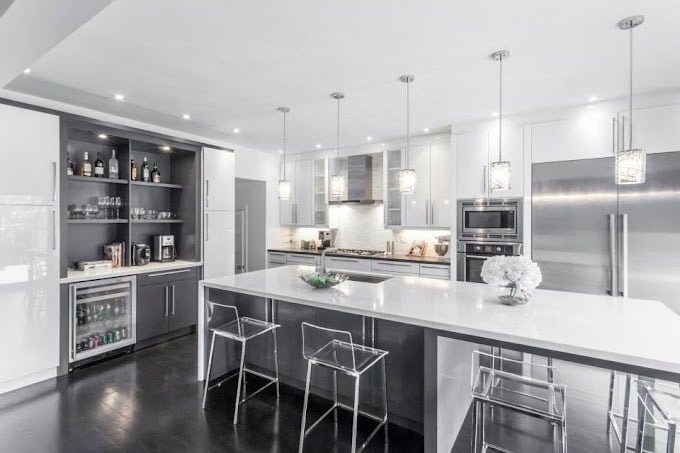
The Construction Phase: What to Expect
During construction, your new kitchen takes shape. This involves demolition, new installations, and more. Stay in close contact with your contractor.
1. Demolition and Site Clearing (1-2 weeks)
The construction phase starts with demolition and site clearing, which usually takes 1 to 2 weeks. During this time, the old kitchen is removed, and the space is cleared to make way for the new design. It can be a messy process, but it’s necessary to start fresh.
2. Structural Changes and Utility Work (1 week)
Next, any structural changes and utility work are completed, which can take 1 week. This includes adjustments to the electrical wiring, plumbing, and HVAC systems to accommodate the new kitchen layout. This step ensures that your kitchen is functional and up to code.
3. Installation of New Elements (2-3 weeks)
After the structural work, new elements like cabinets, countertops, flooring, and appliances are installed. This phase usually takes 2 to 3 weeks. The installation process is where your new kitchen starts to take shape, with all the key components coming together.
4. Finishing Touches and Detailing (1-2 weeks)
The final step in construction involves the finishing touches and detailing, which takes about 1 to 2 weeks. This includes painting, installing backsplashes, and adding final fixtures like faucets and lighting. These details complete the look and make sure everything is polished and ready to use.
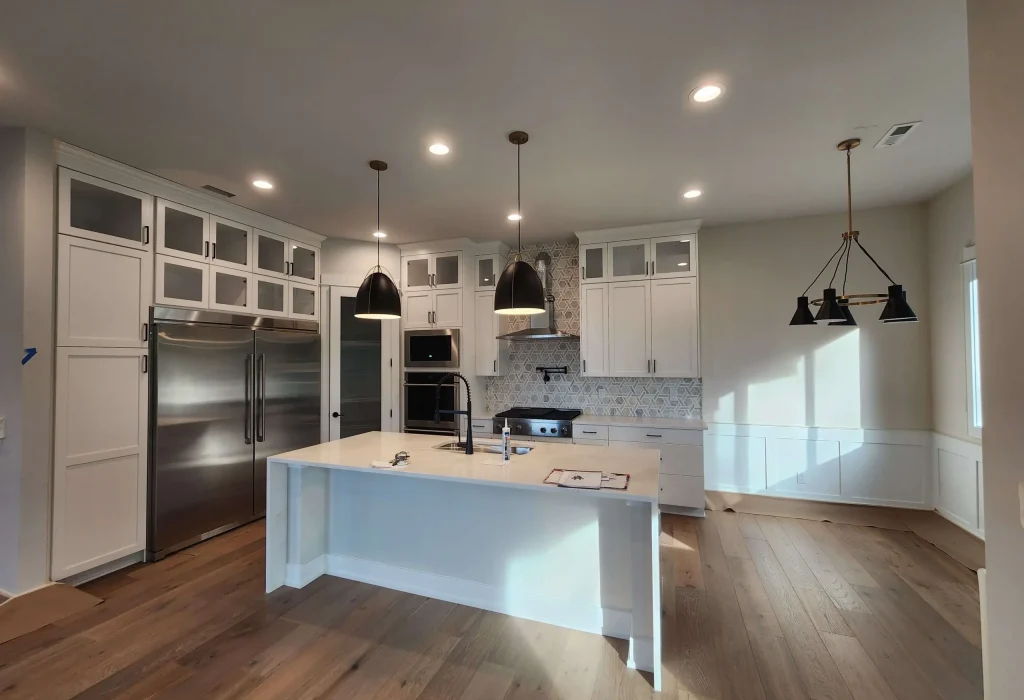
Factors That Can Affect the Timeline
The timeline for a kitchen remodel can vary widely, from 4 weeks for minor updates to 12 weeks for full renovations. Factors like project scope, material availability, contractor schedules, and unexpected issues can all impact the duration. Being aware of these factors and planning accordingly can help ensure the project stays on track.
1. Scope of the Remodel
The timeline can vary depending on the scope of the remodel. A minor remodel only takes a few weeks, while a major remodel with significant changes can take much longer. The more extensive the work, the more time it will require.
2. Unexpected Delays
Unexpected delays are common in any remodeling project, especially in Renton. These could be due to unforeseen structural issues, weather-related interruptions, or back-ordered materials. Being prepared for potential delays can help manage expectations.
3. Contractor Availability
The availability of your contractor can also affect how long the project takes. If your contractor is busy with other jobs, it could cause delays in your remodel. It’s very important to work with a reliable and available contractor. This helps keep the project on schedule.
At Total Quality Express, we are always ready to discuss your remodeling needs. We make sure your project gets the attention it needs. This helps you stay on schedule and get the kitchen you want without unnecessary delays.
Average Time to Complete a Kitchen Remodel in Renton
The average time to remodel a kitchen in Renton can range from about 4 weeks to up to 12 weeks. This depends on the size of the project. Smaller updates may only take 4 weeks. Larger full renovations can take up to 12 weeks. This includes planning and finishing touches. Knowing these typical timelines helps homeowners plan better and have the right expectations for their kitchen remodel.
Type of Remodel | Average Duration |
Typical Remodel | 4 weeks |
Extensive Remodel | Up to 12 weeks |
Budgeting for Your Kitchen Remodel
Setting a realistic budget is an important first step when planning your kitchen remodel. It helps you know how much money you can spend and what changes you can afford.
To create your budget, think about all the costs involved in different phases of the remodel, including design, materials, labor, and permits. Understanding these costs will help you avoid surprises later on.
Here are some tips for cost-effective remodeling:
- Prioritize Your Needs: Focus on the most important changes first, like fixing plumbing or updating appliances.
- Shop Smart: Look for sales, and discounts, or consider using gently used materials to save money.
- DIY When Possible: If you have the skills, doing some work yourself can cut down on labor costs.
- Choose Affordable Materials: There are many budget-friendly options for cabinets, countertops, and flooring that still look great.
By planning carefully and keeping an eye on costs, you can create a beautiful kitchen without breaking the bank.
Enhancing Efficiency and Minimizing Delays
To enhance efficiency and minimize delays during your kitchen remodel, there are several tips you can follow. First, plan by choosing your materials and designs early to avoid last-minute decisions that can slow down the process.
Keeping clear and open communication with your contractor is also important. Regular updates and discussions can help everyone stay on the same page and quickly address any issues that arise.
Tips for Speeding Up the Process
Here are some tips for speeding up the remodeling process. First, prepare your home before construction begins by clearing out the kitchen and making space for workers and materials. This helps the project start smoothly.
Second, streamline communication by setting up regular check-ins with your contractor to discuss progress and any changes needed. This way, everyone knows what to expect and can work together efficiently.
Importance of Flexibility
Being flexible during your kitchen remodel is very important. Sometimes, unexpected issues can come up, like delays in material delivery or changes in design. Being open to adjustments can help you adapt to these changes without getting stressed.
Flexibility allows you and your contractor to find solutions quickly, keeping the project moving forward and ensuring a successful remodel.
Conclusion
Understanding the timeline for a kitchen remodel in Renton is essential for a smooth and successful renovation. By planning and staying flexible, you can manage expectations and minimize delays.
Whether you’re tackling minor updates or a full renovation, clear communication with your contractor and careful budgeting will help ensure your project stays on track.
At Total Quality Express, we are committed to delivering quality results within your timeframe, making your dream kitchen a reality.
